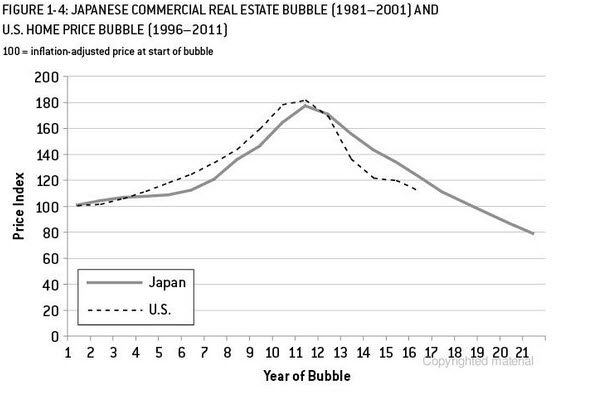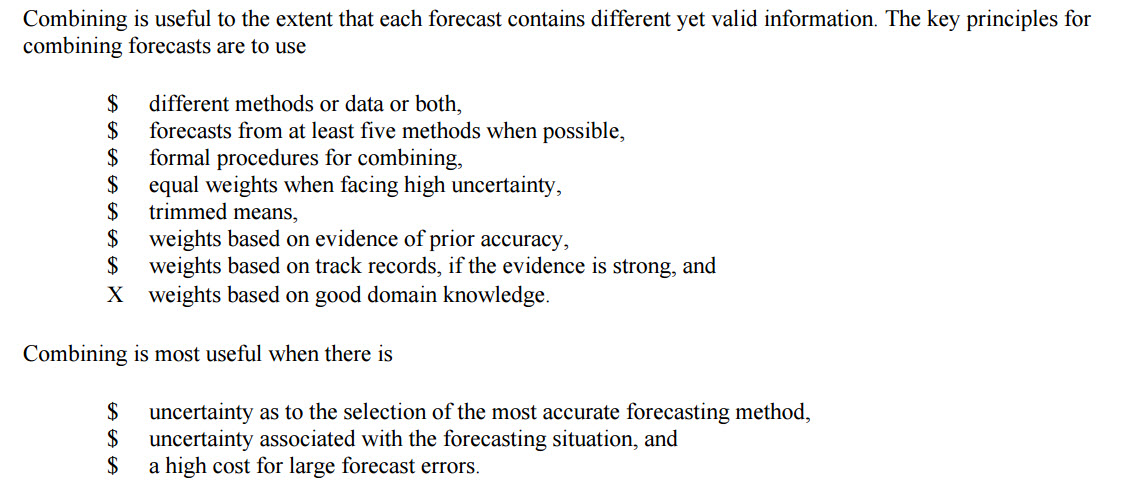There are two questions, I would answer them seperately:
- I plan to do a combination forecast for real estate cycle prediction.
As you can see above I read a lot of literature about it, but cannot
yet decide, which models I choose to implement in R?
- Forecasting cycle is one of the most complex tasks for any forecasters. There is no general model that one could recommend for your specific problem. I have read some whereAs (but unable to find the source) that sayArmstrong notes in his article NOT to forecast cycles as they are stochastic in nature and lack predictability or
unless you know (e.g., based on contractual relationships or on physical or biological laws) that cycles will occur and have good knowledge about timing.See also this article by same author (p14). You could try forecasting by analogue. simple illustrative example follows. See below the picture from Japanese real estate bubble analogues with US home price bubble (Source: Signal and Noise by Nate Silver). Coincidentally this is similar to what you are asking about real estate cycle. The above 2 article also have excellent information on combining forecasts.
- Forecasting cycle is one of the most complex tasks for any forecasters. There is no general model that one could recommend for your specific problem. I have read some whereAs (but unable to find the source) that sayArmstrong notes in his article NOT to forecast cycles as they are stochastic in nature and lack predictability or

- Any recommendation, on which factors a combination forecast can be decided?
- In general combining forecasts works very well. I would not stop recommending the article by Armstrong on combining forecast that provides general and excellent guidance for forecasting practitioners. This would supplement Diebolds excellent chapter on combining forecast techniques that @RichardHardy has referenced. No researchers that I know of, has summarized extensive research on combining forecasts like Armstrong. Below is a screenshot summary of the article. I'm including this because sometimes the link to the article can be broken, and it might not be useful for future readers.

Hope this helps
